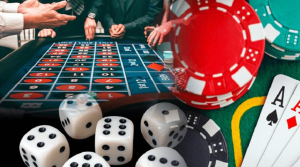Energy drinks have enjoyed the spotlight at numerous sporting events for several years and hold a prominent place in supermarkets and stores catering to the sporting community.
However, their impact on health and their benefits on athletic performance are not uniform.
Energy drinks: to be avoided
Whether it’s Redbull, Monster, Burn or more recently Crazy Tiger, energy drinks are enjoying immense success. In addition to their original taste, it is thanks to their communication that they attract crowds.
The common points of these three drinks are simple:
1. They are partners of important sporting events and/or sports teams.
2. They communicate a lot about the benefits that taurine would have on the body and performance.
3. They call themselves “sports drinks”.
4. they have a unique taste and mix with alcohol.
As a result, for many people, these drinks allow them to “regain” a little energy when they feel tired.
They would even allow us to increase our physical capacities a little by boosting us.
For others, they simply taste pleasant. But energy drinks are not energy drinks, their effects are minimal or non-existent on physical abilities and consuming these drinks in too large quantities or before/during a sporting activity can be harmful to your health.
Indeed, these drinks have too high a carbohydrate content and their acidic pH increases the risk of injury.
Several causes of death are also suspected of having a link with excessive consumption of these drinks (stroke, heart attack, etc.)
Energy drinks: for extreme endurance
Energy drinks such as the famous Powerade but also Lucozade or Hydrixir are truly dedicated to athletes and aim to compensate for losses in water, carbohydrates and minerals.
However, even if these sports drinks can have a real effect, scientists point out that the body, as part of a varied and balanced diet, does not require additional intake to recover.
These drinks are even useless in the context of a sporting activity lasting less than 60 to 90 minutes. Drink plenty of water.










